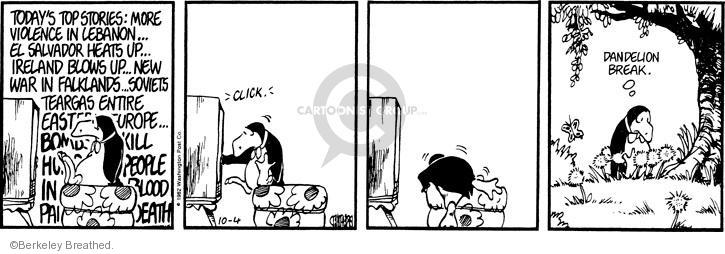When I started coding, over 30 years ago, the backup and restore code in one version of Microsoft DOS was quite grim. In particular, it would allow you to backup your massive 10Mb hard disc (yes, 10 MEGAbyte) onto multiple floppies….and then fail when you tried to restore somewhere around disc 12 or 13. After a while you got used to splitting your backups in to sets so that you never got near the magic failure number….
We used to joke that the code had either been written or designed on a Friday afternoon, when the software guys in Seattle were more worried about the weekend ahead than doing a good job. I know this is grossly unfair; at the time I was working in a culture that had Friday lunchtime as the ‘go to the pub for a few beers and be chill when you got back to the office’ day, so I was probably projecting!
As the years have gone by I’ve still used the phrase ‘a Friday afternoon design’ as an indication that something seemed a bit botched or half-arsed. And today I offer what is for me one of the major Friday afternoon jobs I’ve encountered, committed by evolution itself. The human knee. (Yes, as a Christian I am allowed to believe in evolution – I think that God keeps things simple where He can and evolution is a great way – usually – of getting an optimal solution for biological problems).
I have heard it said that the problems that human beings encounter with our lower backs and our knees are caused by 3 issues:
- The knee is prone to injury – partially due to (3)
- We in the west tend towards porky and so put excess weight on back and knees.
- We’re probably a million years or so early in wandering around on our hind legs, and so they’re not quite ready for it yet.
Well, there’s nothing I can do about (3) and I definitely suffer from (1) and (2). For the last 15 years – courtesy of an injury acquired playing rugby in my teens – my knees have been rather dodgy. They don’t bend as they should, they make noises that they shouldn’t, and they ache like buggery when it’s too damp, too cold, too hot – my knees are ‘Goldilocks Knees’ – they need everything to be ‘just right’.
I’ve had physiotherapy, and drugs, and these days get a lot of relief from exercise (within reason) and something I call my Turmeric Gunk which has been a God-send. Despite appearances, you do eat this stuff, rather than smear it all over the afflicting joint….
My knees have provided comic-relief to numerous children; the clunking noise when I bend my knee has often been greeted with cries of ‘Do it again, Uncle Joe’….when the children concerned start getting clunky joints themselves, I’ll propel myself to them in my wheelchair and wheeze ‘Do it again!’ back!
They’ve also provided me with excuses as to why I can’t play horsey any more – the knees just won’t forgive me!
I was therefore amused and gratified at the latest US advertising campaign for Amazon. It features a priest and an imman meeting up and working out the perfect gift for each other….
https://www.youtube.com/watch?v=ZXyuq_DdnqI
This has particular resonance for me; earlier on this year I was on placement as part of my Reader training at a ‘High Anglican’ church where there’s a lot of kneeling and genuflecting involved. If you’ve never genuflected, trust me – it’s hard going with dodgy knees – there’s always that thought that you might not actually manage to straighten up again!
I spent a few mornings with some serious strapping on my knees!
Perhaps I need to follow the advice from this advert and get some knee supports. And whilst I’m down there praying, maybe I’ll just add a little comment to God asking whether evolution couldn’t have been directed a little to give us better knees…..

